Confront the Unfolding Crisis

Global Temperatures Have Risen
The planet's average surface has warmed by approximately 1.1°C (2°F) since the late 19th century. Most of this warming occurred after 1975, accelerating at roughly 0.15 to 0.20°C per decade. The year 2023 set a new record for global heat.

Ice Has Melted, Seas Have Risen
Greenland shed an average of 279 billion tons of ice yearly between 1993 and 2019; Antarctica, about 148 billion tons. This meltwater has helped global sea levels climb about 8 inches (20 cm) since 1901.
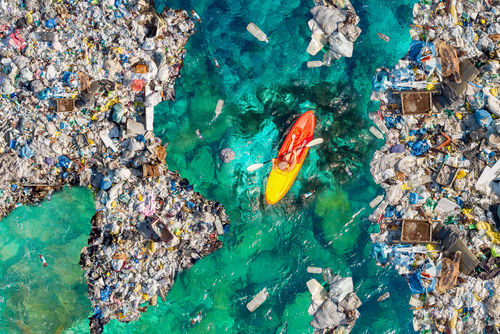
Plastic Is Choking Our Oceans
An estimated 11 million metric tons of plastic have flooded our oceans yearly. Over 5.25 trillion pieces of plastic waste now float in the ocean, degrading into microplastics that poison marine life and infiltrate our food chain. Producing plastic also releases immense greenhouse gases.
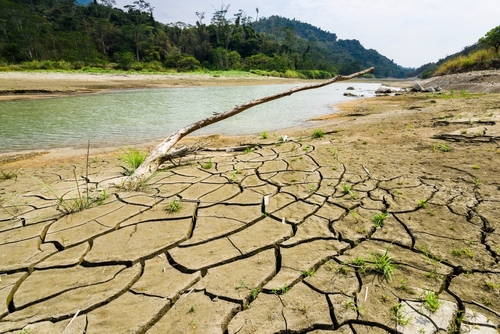
A Looming Water Crisis
Warming temperatures are disrupting global water cycles, leading to more intense droughts and floods. By 2050, more than 5 billion people could suffer water shortages. This scarcity will directly impact our ability to grow food, threatening global security.

Human Costs Have Widened
A changing climate has forced millions from their homes. Between 2008 and 2023, disasters, overwhelmingly climate-related, triggered 337 million internal displacements. This mass movement of people places immense pressure on governments and resources, seen at borders in the U.S. and around the world. The vulnerable have borne the heaviest burden.
Oceans Warm
The ocean absorbs over 90% of excess heat from greenhouse gas emissions.
Glaciers Lose Mass
Glaciers shrink at accelerating rates worldwide, threatening water supplies.
Remembering Our Losses: Climate-Driven Disasters
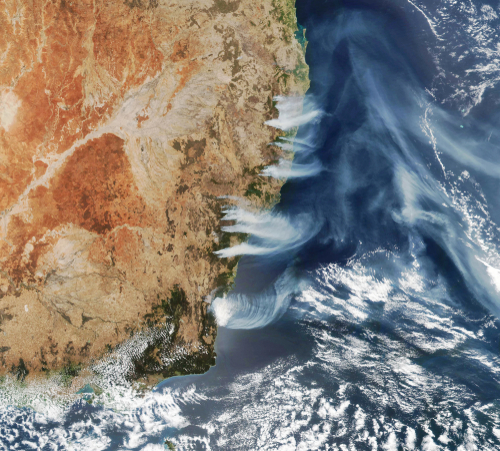
Australia's 2020 Bushfires
Months of severe drought and record heat created the "Black Summer." These fires inflicted over $10 billion AUD in economic damage, decimated tourism, and unleashed a smoke plume that circled the globe, harming productivity and health far beyond.
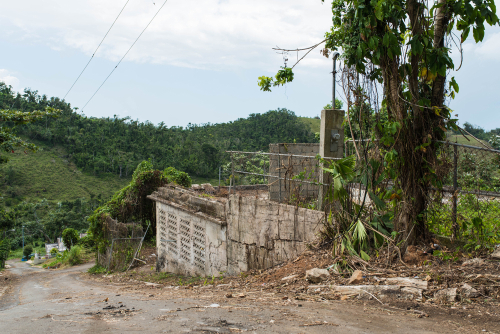
Hurricane Maria 2017
This catastrophic storm inflicted over $91 billion in damages upon Puerto Rico, collapsing the island's power grid completely. Productivity plummeted, with businesses shuttering for months and many people leaving the island entirely.
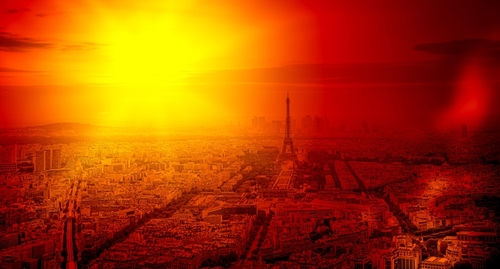
Europe's 2022 Heatwave
Record-shattering temperatures produced over 70,000 excess deaths across Europe. The heat crippled infrastructure, reduced agricultural output, halted river transport from low water, and caused widespread productivity losses as people struggled through unsafe conditions.
A 200-Year Collision Course
How Do We Forge a Path Forward?

Transition to Renewable Energy
We must shift our energy systems from fossil fuels. Investing in solar, wind, and geothermal sources reduces our carbon footprint, creates green jobs, and cleans our air and water.
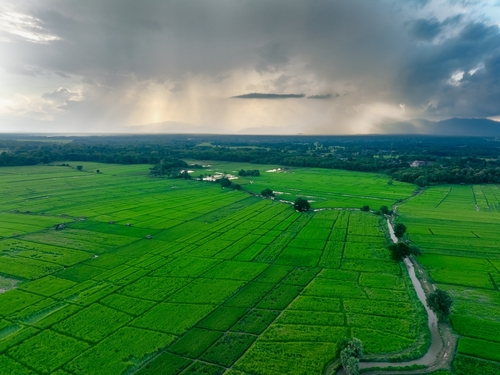
Secure Our Water Future
We must invest in water resilience. This means improving conservation, recycling wastewater, capturing stormwater, and developing climate-resilient agriculture to ensure clean water and stable food supplies for a growing population.
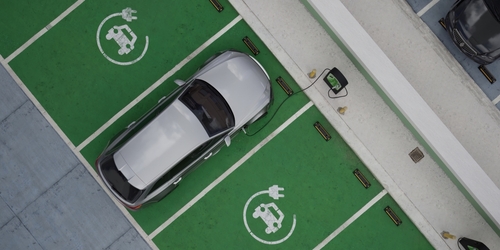
Modernize Transportation
Shifting to electric vehicles (EVs), powered by renewables, remains essential. Expanding public transportation, investing in high-speed rail, and developing sustainable fuels for aviation and shipping represent critical steps.
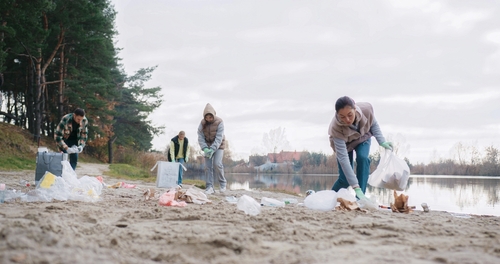
Combat Plastic Pollution
This requires us to drastically reduce single-use plastic production and actively clean up existing pollution. We must embrace a circular economy to stop the plastic flow into our environment.
What Awaits Us If We Do Nothing?
Failing to act decisively over the next decade will invite a catastrophic future. Projections show that continued inaction will lock in devastating consequences by the mid-2030s: global supply chains will falter from constant disruption, staple crop yields could decline by up to 30% in key regions, and water stress will become a permanent reality for billions more people. The economic cost of disaster response will skyrocket, crippling national budgets and diverting all resources from progress to permanent recovery. This path will not lead to a stable world; it will lead to a world of constant, cascading crises.
Your Turn to Act
Individual actions multiply into collective power. Make a pledge today.
Reduce Waste
Commit to reducing single-use plastics and recycling more effectively.
Conserve Energy
Turn off lights, unplug devices, and choose energy-efficient appliances.
Support Sustainability
Choose brands that prioritize sustainable sourcing and ethical production.
What Future Will We Choose?
Politics and opinions differ, yet the data speaks clearly. The planet is changing. We see it in
the smoke-filled skies, feel it in the longer heatwaves, and witness it in the storms that grow
stronger each year. This goes beyond belief; this comes from observation. We no longer ask *if*
we should act, but *how* future generations will remember our actions now. Every fraction of a
degree matters. Every saved species matters. Every single action matters. We stand at a
crossroads, holding the power to either mourn our losses or build an inheritable future.
Eric Saint-Marc, CTO ThinkAhead Corporation
